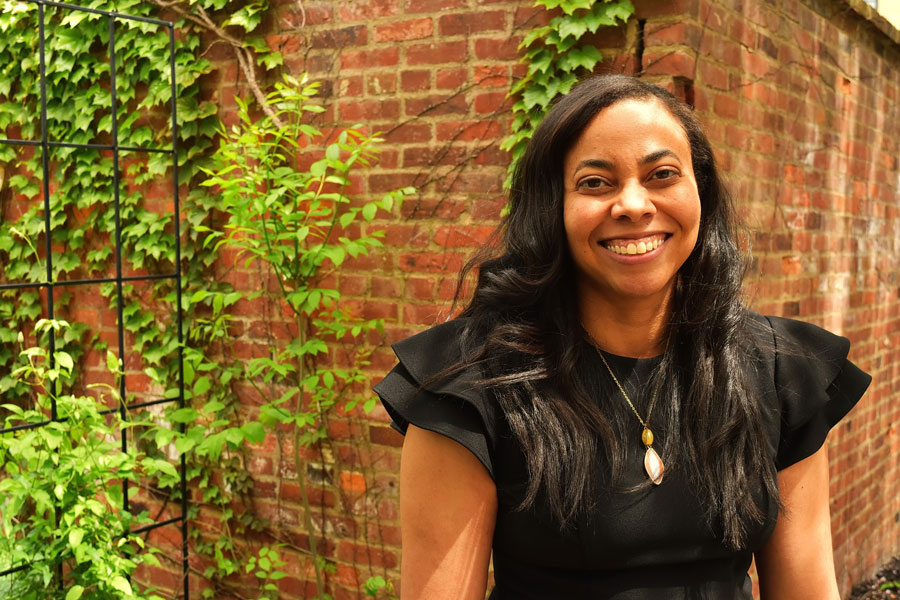Voter rights protection attorney discusses Freedom Summer and its impact on voting in the present-day United States
Camille Wimbish, a voter rights protection attorney for Civil Rights Under Law, discussed the state of voter rights prior to the upcoming 2024 presidential election and post-Freedom Summer.

Voter rights protection attorney discusses Freedom Summer and its impact on voting in the present-day United States
On the evening of Feb 13, Camille Wimbish, a voter rights protection attorney with the Lawyers Committee for Civil Rights Under Law, spoke for the Western College Legacy Seminar about 1964’s Freedom Summer and the current state of voting in America.
The event was orchestrated by Jacqueline Daugherty, the director of the Western Center for Social Impact and Innovation. Daugherty introduced Wimbish by discussing the impact of Freedom Summer and honoring the organizers from the Student Nonviolent Coordinating Committee and volunteers at the Western College for Women (now Miami’s Western Program) 60 years ago.
"Freedom Summer’s goal was to ensure that Black voters had access to the ballot that Jim Crow denied, and today many of our state legislatures are again considering and sometimes enacting bills that chip away at voter rights," Daugherty said.
Wimbish opened by acknowledging that we are approaching the 60th anniversary of Freedom Summer in the United States. Freedom Summer began during the summer of 1964 in Mississippi as a movement to register as many Black American voters in the South as possible.
She went on to discuss the shifting political landscape of Reconstruction and JIm Crow. She started with 1870’s 15th Amendment, which helped bring Black political participation to an all-time high by guaranteeing Black men the right to vote after the Civil War during Reconstruction.
“This period is often ignored or glossed over in history, but unfortunately, this period of high political participation was too short-lived,” said Wimbish.
That peak ended in around 1876, she said, because of the increased enforcement of Jim Crow laws, which denied enforcement of the 15th Amendment and greatly restricted Black Americans' access to voting. She explained how Jim Crow-era restrictions like poll taxes and literacy tests posed great barriers to Black voters. According to Wimbish, this led to what essentially became all-white primaries and elections.
Wimbish spent a large part of her lecture focusing on Fannie Lou Hamer, a civil rights activist from Mississippi who led and organized Freedom Summer at the Western College for Women. Hamer gave an important speech, after heading home from Oxford, titled “Is This America?” On her bus ride home, she was pulled over and told that her bus was not the “right color.” When she arrived to her home in Mississippi, she was shot at and then evicted for trying to register to vote.
“Hamer is such an amazing icon,” Wimbish said. “This sounds so crazy and unbelievable, but her house was shot up with 16 bullets because she attempted to register to vote. She really captured people’s hearts and minds, and this was such a major catalyst for getting the Voting Rights Act passed.”
“The South had a history of discriminating against Black people,” she said. So, the 1965 Voting Rights Act had a number of provisions to ensured voter protection for Black people and other groups historically marginalized from it. For example, Section 5 of the 1965 Voting Rights Act required 9 (mostly southern states) to get "pre-clearance" through the federal government oversight in order to ensure that any voting laws passed by those states would not violate the constitutional rights of Black people.

Center to chat about her career trajectory and work in
protecting and expanding voter rights.
Wimbish explained that today’s voting barriers to people, especially to those of color, include misinformation and disinformation, as well as voter purges, lack of voter education, violence, voter sabotage, and threats to election offices and officials. She encouraged everyone in the audience to get involved to try and stop the spread of misinformation and disinformation, as well as to be informed on voting etiquette and the issues on which we are voting.
When Wimbish opened her lecture up for questions, the audience was quick to jump on the opportunity. One member asked why Section 2 of the Voting Rights Act, which “prohibits voting practices or procedures that discriminate on the basis of race, color, or membership,” is really the only one that remains.
Wimbish replied that the 2013 SCOTUS decision in Shelby v Holder removed the pre-clearance provisions of the 1965 Voting Rights Act, because the judges no longer saw a the proportion of people of color who vote has increased over time. However, she presented research that demonstrated how getting rid of pre-clearance has resulted in a decade of state-level voter-restrictions that disproportionately impact BIPOC, disabled, and rural voters.
Amelia Solmos, a sophomore Philosophy major, said that Wimbish’s lecture made her realize how recent it was that Black Americans couldn’t vote. Solmos believes that if the Voting Rights Act is removed, it will have a snowball effect and eventually decrease voter turnout.
“I think having to go out and get an official ID is still a form of a poll tax,” said Solmos. “Especially for those people who have been denied basic rights in the past. Overall, it does seem like a burden.”
The overall message of Wimbish’s lecture was that we should not take our rights, or the people who fought for these rights, for granted. Despite its progress, the U.S. still has a long way to go in terms of voter rights.
“We have resources for voters to navigate all of the trials and tribulations that come with voting,” Wimbish said. “Oftentimes, you just need basic voter education. Make your vote count.”